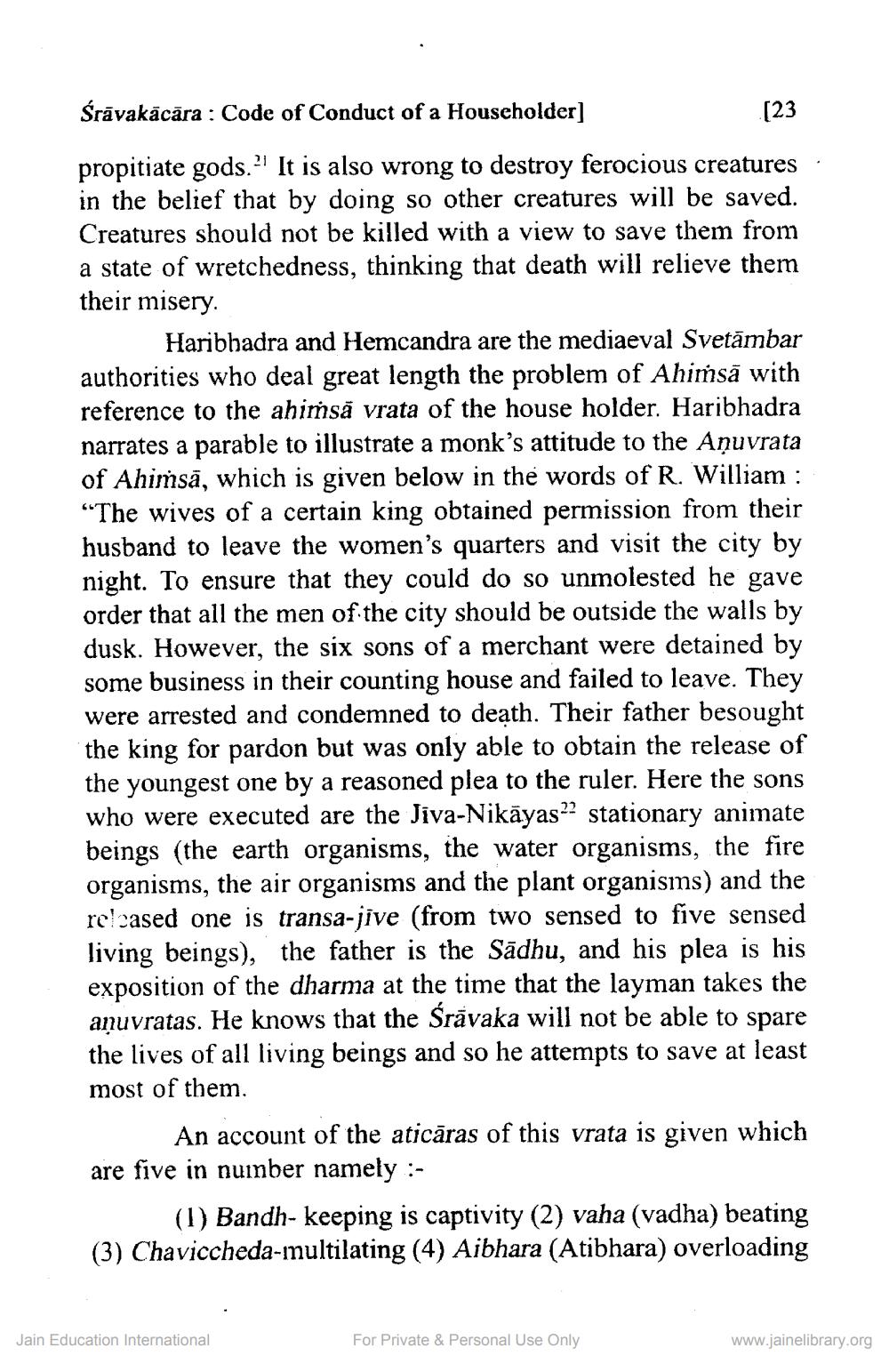________________
Śrāvakācāra : Code of Conduct of a Householder]
[23
propitiate gods.” It is also wrong to destroy ferocious creatures in the belief that by doing so other creatures will be saved. Creatures should not be killed with a view to save them from a state of wretchedness, thinking that death will relieve them their misery
Haribhadra and Hemcandra are the mediaeval Svetāmbar authorities who deal great length the problem of Ahimsā with reference to the ahiṁsā vrata of the house holder. Haribhadra narrates a parable to illustrate a monk's attitude to the Aņuvrata of Ahimsā, which is given below in the words of R. William : “The wives of a certain king obtained permission from their husband to leave the women's quarters and visit the city by night. To ensure that they could do so unmolested he gave order that all the men of the city should be outside the walls by dusk. However, the six sons of a merchant were detained by some business in their counting house and failed to leave. They were arrested and condemned to death. Their father besought the king for pardon but was only able to obtain the release of the youngest one by a reasoned plea to the ruler. Here the sons who were executed are the Jiva-Nikāyasstationary animate beings (the earth organisms, the water organisms, the fire organisms, the air organisms and the plant organisms) and the released one is transa-jive (from two sensed to five sensed living beings), the father is the Sadhu, and his plea is his exposition of the dharma at the time that the layman takes the aņuvratas. He knows that the Srāvaka will not be able to spare the lives of all living beings and so he attempts to save at least most of them.
An account of the aticāras of this vrata is given which are five in number namely :
(1) Bandh- keeping is captivity (2) vaha (vadha) beating (3) Chaviccheda-multilating (4) Aibhara (Atibhara) overloading
Jain Education International
For Private & Personal Use Only
www.jainelibrary.org




